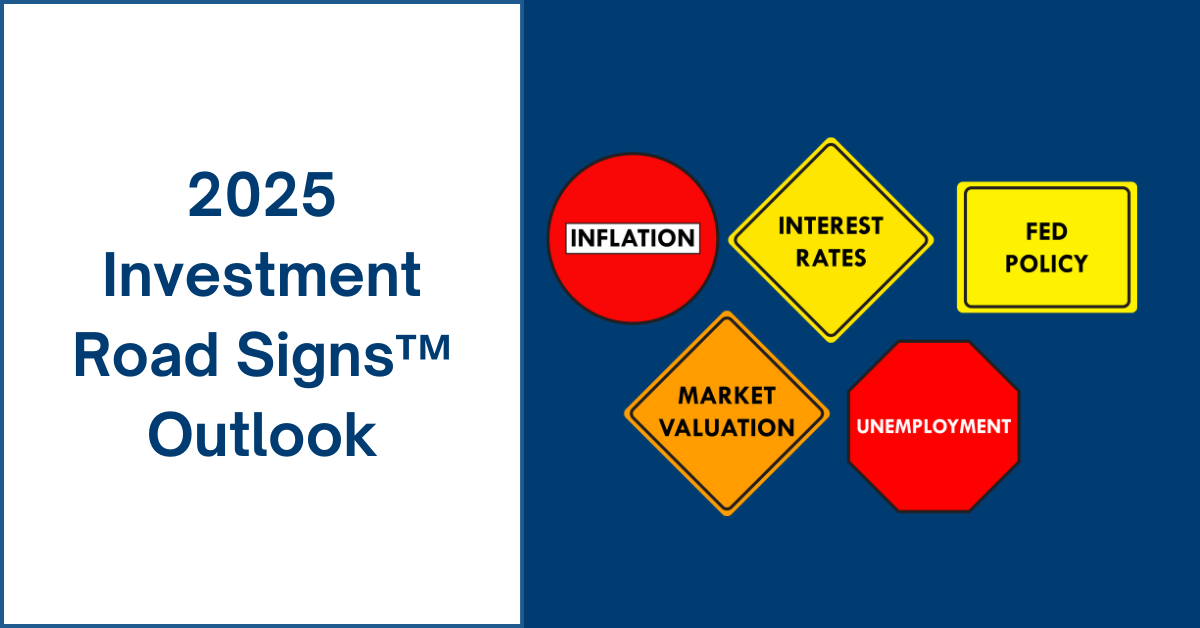Blog
Fraud Risks Rise with Market Volatility—Here's How to Stay Safe
Periods of market volatility often bring an uptick in fraudulent activity, as bad actors attempt to exploit uncertainty. Your security is our top priority—and now is an important time to stay especially vigilant.
Mitigating Market Swings Due to Recent Tariff News
With equity markets continuing to experience volatility in today’s climate, we’re taking a closer look at two key defensive positions we hold across all our model portfolios. These long-term hedges are designed to help manage portfolio risk and have historically performed well when stocks perform poorly.
Is Your Estate Plan Up to Date? Let’s Review
Don't leave your estate plan to chance. Ensure your wishes are fully reflected in your current estate plan.
1099 Tax Season Update
As tax season approaches, we want to ensure you’re up to date on the latest information regarding your 1099 tax forms. Here are three key things to know:
Investment Update: Adjusting to Market Shifts After DeepSeek’s News
Many of you may have heard the recent news about DeepSeek, a Chinese AI upstart that could disrupt the AI cost model by offering a comparable alternative to ChatGPT at a fraction of the cost to develop and operate. In this brief market update, we’ll explain how the equity portion of your portfolio is positioned to mitigate risk from any potential market impact stemming from this news.
2025 Investment Road Signsᵀᴹ Outlook
As we move into 2025, a Fed policy road sign sighting is becoming more likely, and clear road signs are present for both market valuations and unemployment. These road signs guide our risk mitigation strategy, allowing us to take action without relying on timing the market. Key steps include overweighting value sectors to reduce exposure to the top ten overvalued stocks in the S&P 500, increasing allocations to high-quality fixed income, and incorporating alternative assets like gold. These strategies have helped enhance risk reduction across many client portfolios, especially those with larger equity allocations, positioning us to navigate elevated market risks with greater stability.
Get Ahead with These Tax Planning Tips for 2025
As year-end approaches, we want to highlight key tax planning strategies for wrapping up 2024 and preparing for next year.
This list includes actionable strategies we may have begun implementing for clients or will consider at a more relevant time in the future. Our guidance for these strategies is specific to each client’s current projected tax situation and financial goals, ensuring customization for unique circumstances.
Navigating Post-Election Markets: Investment Strategies for the Road Ahead
It’s often said after elections, 'It’s never as good as you expect when your candidate wins, and it’s never as bad as you fear when your candidate loses.' Despite the stock market's initial positive momentum following the recent election, we believe this sentiment also offers valuable guidance for the capital markets moving forward.
Year-End Reminder: Navigating RMDs for Inherited IRAs
Fourth quarter is typically when we contact clients about satisfying their required minimum distributions (RMDs) from their IRAs & inherited IRAs ahead of the end-of-year deadline.
For those with inherited IRAs, keeping up with the most recent IRS guidance on required distributions is a little more complicated!
Act Now: Beneficial Ownership Reporting Deadlines for Business Owners
As many of you may know, in 2021, Congress enacted the Corporate Transparency Act – a new anti-money laundering law that requires action by most business owners.
Starting in 2024, many businesses will be required to disclose their ownership; this will be accomplished by filing a Beneficial Ownership Information (BOI) report with the Financial Crimes & Enforcement Network (FinCEN).
Stock Market Guidance Based on Fed Rate-Easing History
After a much anticipated and significant policy change, the dust has finally settled from the Federal Reserve's 0.5% rate reduction announcement on September 18th.
Historical data shows that stocks have generally performed well when the Federal Reserve has initiated a series of rate cuts. For instance, in five out of the last seven rate-cutting cycles dating back to the 1980s, the S&P 500 has shown positive one-year performance following the first rate cut in a series.
Investing Through Political Change: Navigating Sectors in a Post-Election Economy
Election years stir market buzz, but do policies drive sector performance? 💰 Our latest blog breaks down surprising trends under past presidents.
Job Market Slows, Fed at a Crossroad: What’s Next for the Economy?
The Federal Reserve’s future rate decisions are becoming increasingly linked to unemployment data. If unemployment numbers continue to weaken, they could be caught in a "no-win" situation
Seasonality and Election Year Considerations: A Dive into September’s Market
September has a well-documented history of being the worst-performing month of the year for the stock market, particularly when analyzing the Dow Jones Industrial Average (DJIA).
Understanding the Shift in Real Estate Commissions: A Guide for Sellers and Buyers
The National Association of Realtors (NAR) recently announced a nationwide settlement resolving allegations that the industry colluded to maintain high agent commissions. This agreement has created the most significant law changes in the U.S. home buying and selling process in decades. Sellers and buyers must understand how these new laws impact their roles in a real estate transaction. This blog will break down what these changes mean for sellers and buyers, along with the considerations they should keep in mind going forward.
Understanding Compensation Models for Financial Advisors: Why Fee-Only is the Gold Standard
When selecting a financial advisor, understanding the various compensation models is crucial to ensuring that your advisor's recommendations align with your best interests. Financial advisors generally operate under three primary compensation models: commission-based, fee-based, and fee-only. Each model has its own implications for how advice is provided and the potential for conflicts of interest.
Special Investment Update: What to Make of the Recent Extreme Drop in the Stock Market?
The easiest way to explain this recent stock market volatility may be to look at it from the viewpoint of the Federal Reserve (Fed). We believe the stock market is ‘bullying’ the Fed to make a rate policy change similar to what transpired in the stock market in the fourth quarter of 2018:
Optimizing Equity Hedging: Case Study and Current Market Pricing Insights
Given this increasing risk environment, our hedge investment strategy is designed to lower portfolio risk without making specific market timing calls 🌐
Learn more about how we strategize to protect your investments in our latest blog.





















